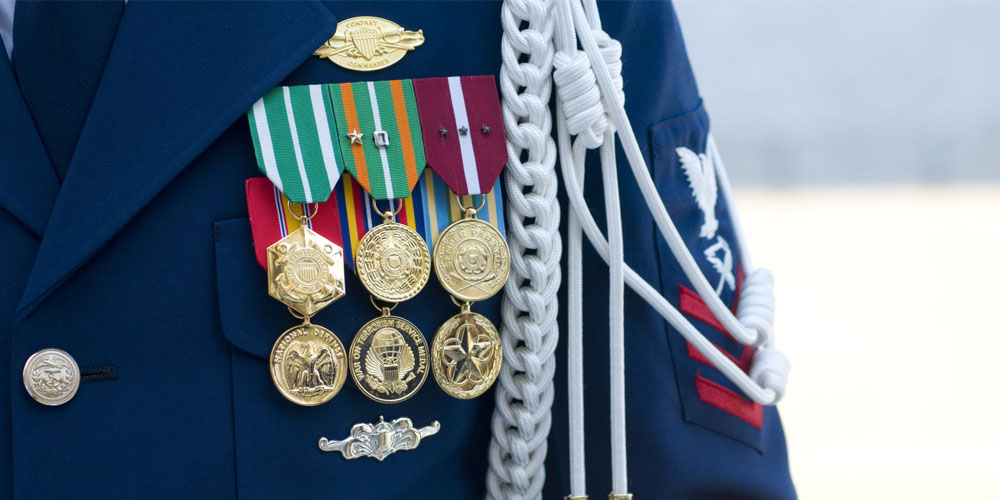Credibility credentials matter
Whether you are a military boss or an industry chief, establishing competency is no longer such a narrow road.
A track record that convinces others of your credibility is a precious commodity. Authenticity may help leaders inspire others to follow, but credibility is the gateway qualification to lead in the first place. Some define credibility through achieved credentials. Others believe it is the right combination of experiences. For the purposes of this article, I consider it to be some of both, plus something harder to quantify: are leaders “up for it”?
But where does credibility come from, and what does it mean for people seeking those top jobs?
However it is accrued, credibility cannot be obtained overnight. The right experience breeds confidence among followers, but that’s just the beginning. Future credibility will be based on the leaders’ ability to use their experience to define and deliver when they are in their post.
You can get credibility through experience. I spoke with two senior British military leaders about being tested on the battlefield and what such experience is worth today. You can get it from being the kind of leader I define as a lover—building up skills over time because of a love for the job. Or you can earn your stripes gathering experience outside a company. The bottom line is that credibility matters if you want to get your workforce behind you.
Air Chief Marshal Sir Michael Wigston, the UK’s chief of the air staff and leader of the Royal Air Force (RAF), has what seems to be the perfect resume. In the course of more than 35 years of sterling service, he has flown at seven miles a minute barely 250 feet off the ground in some of the most dangerous parts of the world, including while enforcing the no-fly zones around the Iraqi city of Basra during the first Gulf War.
Overseeing a 38,000-strong team that is often put in life-threatening situations leaves no room for mistakes. Yet in our discussion, Wigston reacted with dismay to the idea that his brand of operational experience should be essential to lend people the credibility necessary to lead.
“That is actually how it has been for the last 100 years,” he said. “But I think we have lost so much talent along the way because we have glass-ceilinged everybody who hadn’t been a fast jet pilot. We were selecting our chiefs of the air staff based on [their] hand-eye coordination as 21-year-olds…. Whilst credibility matters, you can get credibility in other ways now.”
Wigston has a point. If leadership credibility were gained only at the most visible, sharp end of an organization, then all-star strikers might gravitate to football club management. But the capabilities of managing and playing are different. By the same token, a battle-scarred James Bond would long ago have been pulled from the field and promoted to the helm of MI6 if the top job were simply a matter of derring-do. In financial services, all the leaders might be top traders—but there are only a few Larry Finks who made it from the trading floor to CEO successfully.
There’s more to credibility than being the best at one thing, however central it is to the success of an endeavor. Until recently, Wigston’s counterpart at the Royal Navy was Admiral Sir Tony Radakin. In late October 2021, he was named the UK’s chief of the defence staff. Radakin has a similarly distinguished pedigree, with operational service that has seen him on security duties in the Falklands, countering smuggling in Hong Kong and the Caribbean, and in command positions with the Iraqi Maritime Task Force and the Portsmouth Naval Base.
Conceding that the Navy needs to broaden its development of future leaders to bolster what has been a male-dominated bureaucracy, Radakin suggests that having worked at or close to the front line is still vital. “In order to have some credibility in these roles, you do have to have been placed in positions where you have got that operational responsibility and an operational anxiety that the decisions you are taking do impact people’s lives,” Radakin told me.
Building experience
Inside an organization, leadership candidates can steadily accumulate responsibility, as seen in both Wigston’s and Radakin’s careers. For them, it could not have been any other way, as both the Royal Air Force and Royal Navy are base-fed organizations, which all but rules out mid- or high-level lateral hires who can import credibility from elsewhere and reduces the talent pool, particularly when it comes to women, who are underrepresented in the armed forces. Some corporations act this way too.
But gaining credibility is not just about being good at the job. It’s about being passionate and displaying that passion. In our world, technocratic credentials are seen as bringing credibility, but passion can establish your credibility, too. In my recent book, The Nine Types of Leader, I created a taxonomy of the types of leaders I have encountered in reporting on business for the past 20 years. The “lovers,” who I mentioned above, are utterly passionate about what they do. Long service alone does not create leaders, but years successfully invested in scaling an organization, plus infectious enthusiasm, do have a direct correlation with gaining credibility. Lovers are the leaders in high office who have maintained a low ego. They would not dream of asking their team to do a job they wouldn’t be willing to do themselves. The chances are they have already done it.
Technocratic credentials are seen as bringing credibility, but passion can establish your credibility, too.
Take, for example, Joey Gonzalez, the chief executive of fast-growing US fitness chain Barry’s. It took 14 years from when he walked into the original Barry’s outpost in West Hollywood for him to become chief executive of a group that now has more than 80 gyms from Singapore to Stockholm and a host of celebrity fans. Gonzalez began as a customer, then trained as an instructor. The first class he took “was one of the best days of my life,” he said.
Gonzalez continued to rise through the organization. Rather than leave operations behind when he took on leadership, he kept teaching classes on Saturday mornings, and when the COVID-19 pandemic struck, led virtual classes via Instagram.
Inside-outside job
Credibility can also come dipped in nostalgia. For the 12 years he was absent from US microchip giant Intel, Pat Gelsinger was often spoken of internally as a dream CEO. His deep knowledge of the company was gained during a 30-year career that saw him rise to become chief technology officer. Coupled with a record of success that included leading the turnaround of software maker VMware, it meant Gelsinger’s appointment to the helm was well received in January 2021.
The credible insider has license to invoke the past in order to inspire the future. “To come back ‘home’ to Intel in the role of CEO during what is such a critical time for innovation, as we see the digitization of everything accelerating, will be the greatest honor of my career,” the veteran wrote to colleagues.
And what about leaders from outside an organization? For them, credibility comes from the relevance of their experience and reputation. They have to look the part before they enter the building.
Patrik Frisk was an obvious candidate to succeed Kevin Plank, founder of US sports clothing brand Under Armour, in 2020, after joining as president and chief operating officer in 2017. Not only had he held senior roles at several outdoor labels—including Gore-Tex, the North Face, and Timberland—but the Swede had also undergone the tricky process of replacing another founder as CEO at the Canadian shoe retailer Aldo.
And Amanda Blanc, who became CEO of the UK insurer Aviva in 2020, had already sat on its board as a nonexecutive director for six months. Not only did that experience prepare her fellow board members for her appointment, but it gave her insight into the group’s struggles to simplify its structure and move at pace. Marry that credential with her career start as a graduate at Commercial Union, one of Aviva’s antecedent firms, and previous leadership roles at Axa and Zurich Insurance Group, and it is clear that Blanc had ample credibility.
Change in the air
At the RAF, Wigston has acted to remove legacy barriers in order to recalibrate credibility for the leaders who will follow him. For example, to become station commander at a main operating base is to attain the most challenging midlevel command appointment and a gateway to higher rank. Thanks to Wigston, no longer is that post open only to aircrew.
Technology has also helped change the thinking for an organization whose leaders were always drawn from the “tip of the spear.” The RAF’s Reaper aircraft is operated from a control cabin thousands of miles away from the battlefield, but its crew is at the heart of modern air operations, just as cyber and space operators now are.
“The future battlespace will see even more remote control and autonomy, so the trend away from Royal Air Force leaders having to have flown aircraft will, if anything, accelerate,” Wigston said. The same shift in the nature of experience will also be felt in business as technology changes and the ability to navigate today’s crises requires new skills. The need for credible leaders, however, will be a constant.
Author profile:
- James Ashton is a UK-based business writer and speaker with more than 20 years’ experience, including working as city editor for the Sunday Times of London. His book The Nine Types of Leader was published by KoganPage in 2021.





